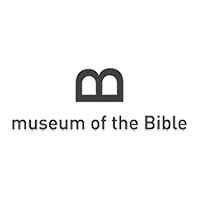WASHINGTON — The importance of the Bible extends to three major monotheistic religions: Christianity, Judaism and Islam. While the connections between Jewish and Christian Scriptures may be more easily seen, how has the Bible played a role in the origins and development of Islam?
To discover the answer to this question, Museum of the Bible invites guests to join “The Bible and the Qur’an,” a panel discussion with renowned Qur’an scholars Mustafa Akyol, Ryann Elizabeth Craig, Ayman Ibrahim and Gabriel Said Reynolds, Thursday, Oct. 21, from 6:30 p.m. to 8:30 p.m. (ET).
“The Qur’an is a scripture that engages closely with the biblical traditions,” said Dr. Gabriel Said Reynolds. “It discusses figures from Adam to Moses to Jesus (and Mary!) while commenting on a wide range of biblical narratives. It is crucial for dialogue to have a clear sense of the dynamic relationship between the Bible and the Qur’an.”
The event will be hosted in person at the museum and virtually via Zoom. The panelists will explore the relationship between the Bible and the Qur’an and will explain how the Qur’an is part of the larger story of the Bible’s impact on the world. An audience question and answer session will follow the panel discussion.
“For centuries, the links from the Bible to the Qur’an have been observed, discussed, and debated,” said Dr. Jeffrey Kloha, chief curatorial officer at Museum of the Bible. “These distinguished scholars will shed light on ways that the Bible was used and interpreted in the Qur’an and help attendees better understand how these major world religions have interacted with one another.”
Mustafa Akyol is a senior fellow at the Cato Institute’s Center for Global Liberty and Prosperity, where he focuses on the intersection of public policy, Islam and modernity. He is also a contributing opinion writer for the New York Times, commenting on matters of democracy and human rights in his native Turkey and the broader Muslim world. His published books include “Islam without Extremes: A Muslim Case for Liberty, “The Islamic Jesus: How the King of the Jews Became a Prophet of the Muslims” and “Reopening Muslim Minds: A Return to Reason, Freedom and Tolerance,” which was released earlier this year.
Ryann Elizabeth Craig received her doctorate in Semitics at the Catholic University of America while in residence as a doctoral fellow at the Tantur Ecumenical Institute in Jerusalem. She is now the director of student programs for the Berkley Center for Religion, Peace and World Affairs at Georgetown University, with a teaching appointment in the Prince Alwaleed Bin Talal Center for Muslim-Christian Understanding. Her research focuses on the use of Qur’anic prooftexts in Christian Arabic and Syriac sources. She recently served as copy editor for the International Qur’anic Studies Association (IQSA) journal and monograph series and also as project manager for the Christian Communities of the Middle East Project, a cultural heritage preservation initiative at Catholic University. Her co-edited volume with Vasile-Octavian Mihoc, “A Contested Coexistence: Insights in Arabic Christianity from Theology to Migration,” was released last year.
Ayman Ibrahim was born and raised in Egypt and is currently the Bill and Connie Jenkins Professor of Islamic Studies and director of Jenkins Center for the Christian Understanding of Islam at the Southern Baptist Theological Seminary. He has completed two doctorates in Islamic Studies at Fuller Theological Seminary and at Haifa University, respectively. Since 1991, he has taught in various countries in the Muslim world and in the West at both the undergraduate and graduate levels. He is a member of the Center for the Study of Inter-Religious Encounters at Ben Gurion University of the Negev, the International Qur’anic Studies Association and the Evangelical Theological Society. He is the author of “Conversion to Islam,” “Basics of Arabic,” “ A Concise Guide to the Qur’an,” “The Stated Motivations for the Early Islamic Expansion” and “Muslim Conversions to Christ: A Critique of Insider Movements in Islamic Contexts,” co-edited with Ant Greenham. His articles on Islam and Christian-Muslim relations have appeared numerous publications.
Gabriel Said Reynolds holds a doctorate in Islamic Studies from Yale University. Currently, he researches the Qur’an and Muslim/Christian relations and is the Crowley Professor of Islamic Studies and Theology in the Department of Theology at Notre Dame University, where he teaches courses on theology, Muslim/Christian relations and Islamic origins. From 2012 to 2013, Reynolds directed, along with Mehdi Azaiez, “The Qur’an Seminar,” a year-long collaborative project dedicated to encouraging dialogue among scholars of the Qur’an, the acts of which appeared as “The Qur’an Seminar Commentary.” He is the editor of three volumes in the Routledge Studies in the Qur’an series and is the author of “The Emergence of Islam: Classical Tradition in Contemporary Perspective,” “The Qur’an and the Bible” and “Allah: God in the Qur’an,” which was released last year.
Tickets are required to attend the discussion. Tickets for in-person participants are $9.99 each for adults and $4.99 each for students and can be purchased here. Tickets for virtual participants are $9.99 each for adults and $4.99 each for students and can be purchased here.
More information on Museum of the Bible is available here.

